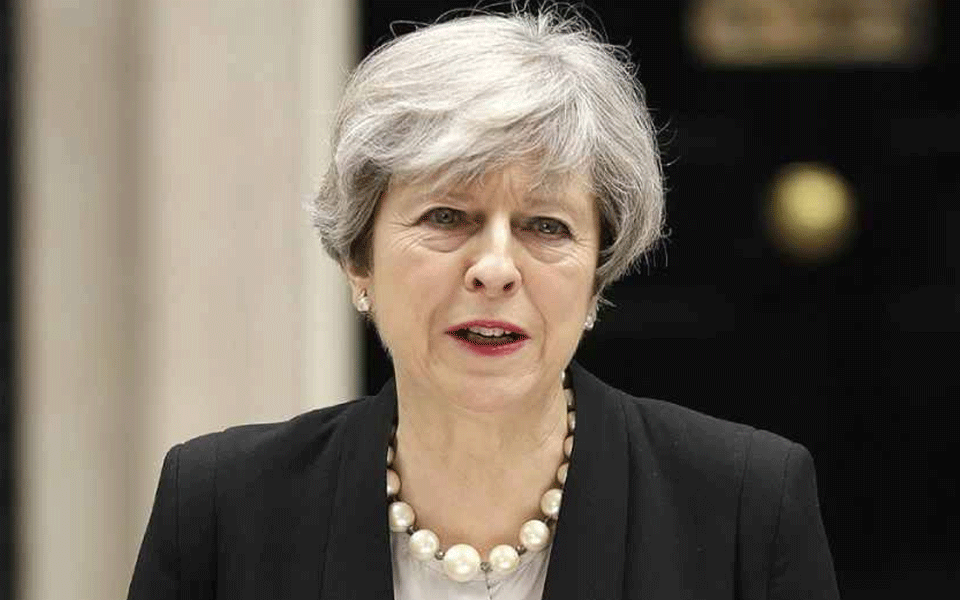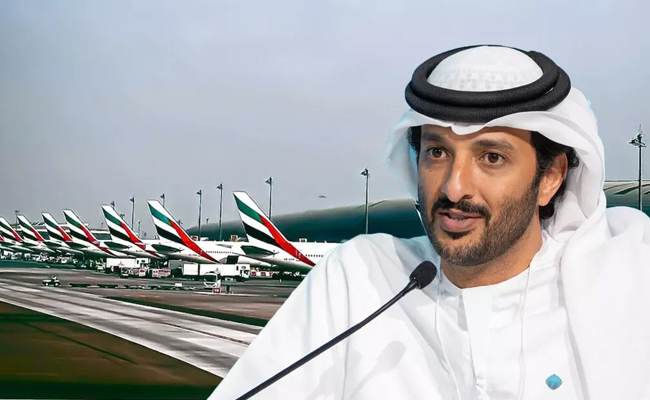London, Apr 10: Theresa May on Wednesday described the Jallianwala Bagh massacre in Amritsar as a "shameful scar" on British Indian history but stopped short of a formal apology sought by a cross-section of Parliament in previous debates.
In a statement, marking the 100th anniversary of the massacre, at the start of her weekly Prime Minister's Questions in the House of Commons, she reiterated the "regret" already expressed by the British Government.
The massacre took place in Jallianwala Bagh in Amritsar on Baisakhi in April 1919 when the British Indian Army troops, under the command of Colonel Reginald Dyer, fired machine guns at a crowd of people holding a pro-independence demonstration.
According to the British government records, 379 people, including men, women and children were killed and around 1200 injured in the firing.
"The tragedy of Jallianwala Bagh of 1919 is a shameful scar on British Indian history. As Her Majesty the Queen (Elizabeth II) said before visiting Jallianwala Bagh in 1997, it is a distressing example of our past history with India," she said in her statement.
"We deeply regret what happened and the suffering caused. I am pleased that today the UK-India relationship is one of collaboration, partnership, prosperity and security. Indian diaspora make an enormous contribution to British society and I am sure the whole House wishes to see the UK's relationship with India continue to flourish," she said.
In response, Opposition Labour Party Leader Jeremy Corbyn demanded that those who lost their lives in the massacre deserve a "full, clear and unequivocal apology for what took place".
May's statement comes a day after British MPs at Westminster Hall of the Parliament complex debated the issue of a formal apology for the April 13, 1919 massacre to mark its centenary this Saturday.
Foreign Office Minister Mark Field had told MPs that he had been "compelled" by the arguments to raise the issue of going further than the "deepest regret" expressed over the killings during the British Raj.
"I feel that we perhaps need to go further... I have now been persuaded - not just by this debate - to take a different approach," the minister said, adding that the government had to also consider the "financial implications" of any apology for events of the past.
"These issues are an important way of trying to draw a line under the past. Therefore, this is a work in progress and I cannot make any promises," he said, holding out some hope of a formal apology over the incident.
The debate was tabled by Conservative Party MP Bob Blackman, who opened proceedings with a strong sentiment of "shame" as he called on the British government to apologise.
"General Dyer was vigorously defended by - I say this with shame - the Conservative party, as well as most of the military establishment. He evaded any penalties post inquiry, as his military superiors advised that they could find no fault with his actions, his orders, or his conduct otherwise," Blackman said, in reference to the British general who had ordered the shooting at a Baisakhi gathering in Amritsar 100 years ago.
"As we approach the 100th anniversary of the Jallianwala Bagh massacre in Amritsar on 13 April 1919, it is clear that there needs to be a formal apology from the United Kingdom government that accepts and acknowledges their part in the massacre," said Indian-origin Labour MP Preet Kaur Gill.
"This is the right time for the (British) Prime Minister to publicly apologise," added fellow Labour MP Virendra Sharma.
In wrapping up the outcomes of the debate, Blackman concluded that children in British schools should be taught about the tragedy because people should know what happened in Britain's name and that "saying sorry - apologising for this massacre - is the right thing to do".
The pressure on the Cabinet minister mounted further on Wednesday as he received a letter signed by 80 MPs stressing that he must consider their call for an "apology anew".
"Relations between the UK and India today are friendly and constructive. Yet that does not mean an apology would not be good," notes the letter, initiated by Labour MP Pat McFadden.
During a previous debate in the House of Lords earlier in the year, it was confirmed that UK foreign secretary Jeremy Hunt was "reflecting" on demands for a formal apology to mark the centenary of the Jallianwala Bagh massacre this week.
Following Theresa May's latest statement on the issue in the Commons, it remains to be seen if the UK government will follow up with any further statements in the lead up to the 100th anniversary on Saturday.
Let the Truth be known. If you read VB and like VB, please be a VB Supporter and Help us deliver the Truth to one and all.
Udupi: Manju Kola, husband of former Udupi City Municipal Council Vice-President Lakshmi Manjunath and a Hindutva organisation leader, was stabbed during a meeting held to settle a dispute related to a love affair at Malpe on Tuesday night.
Police have arrested five accused in connection with the case.
According to information available, Manju Kola had reportedly called for a compromise meeting near Malpe beach in the Palimaru area on Tuesday evening to resolve an issue involving a couple. During the discussion, a heated argument broke out and a youth allegedly stabbed Manju Kola.
He sustained injuries to his abdomen and collapsed. He was immediately shifted to a private hospital in Udupi for treatment.
Udupi Superintendent of Police Hariram Shankar said that five accused have been arrested in the case. As per preliminary investigation, the incident appears to have occurred due to personal reasons. He clarified that there is no communal angle to the incident and urged the public not to spread rumours.
The injured Manju Kola is out of danger and his condition is stable, the SP said.





